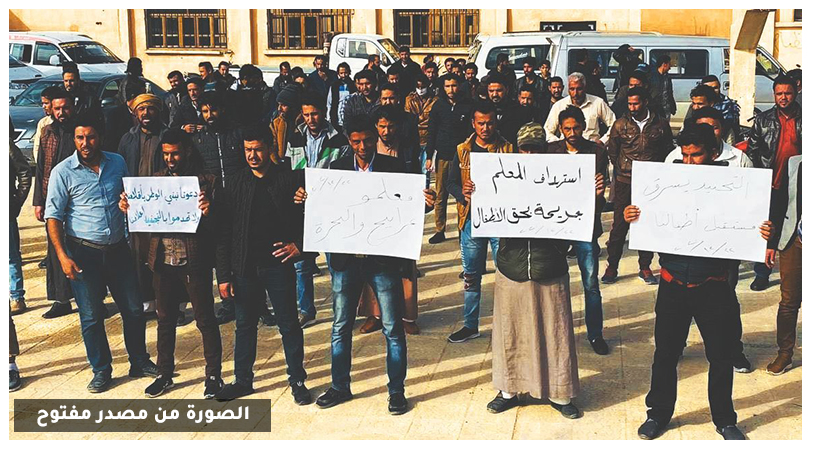Education has been a crisis sector since the beginning of the war in eastern Syria/Deir Ezzor in 2012, with most schools suspended from work and thousands of teachers displaced. Teachers were arrested, kidnapped, and dismissed for their political views. When ISIS took over in 2014, schools were completely closed. Students in ISIS-controlled areas in Deir Ezzor were denied from completing education at public schools in the city, which was previously under government control. After the SDF entered the areas of the northern Euphrates River, the expulsion of ISIS, and the restoration of the southern bank by government forces, education has returned, especially in areas recaptured by the government with many challenges. While in the Autonomous Administration/SDF areas, an education committee has been formed to oversee the educational process. The Autonomous Administration and civil society organizations have rehabilitated some schools.
The total number of schools in the Autonomous Administration areas of Deir Ezzor reached 678 primary and middle school schools and the number of teachers in those areas is 8,663, and the number of students is 302,105.
Since then, there have been many difficulties for students to complete their education. And because of that, teachers in Deir Ezzor staged a strike at the beginning of March 2022, demanding better educational realities, higher monthly wages, and protection of schools.
This report covers the strike of teachers in the Autonomous Administration areas of Deir Ezzor, the reality of the educational process, and the adaptation of student families to the current situation. The report concluded that the parties to the conflict in Deir Ezzor, the Syrian Government and the Autonomous Administration, are responsible for the deterioration of educational realities and that education in the areas of the Autonomous Administration is not met with minimum conditions to provide an appropriate and non-discriminatory educational environment, and that both parties to the conflict, despite their communication at the political, military and security levels, they do not invest in this communication in favor of developing education, stopping school dropouts, and facilitating students’ access to appropriate schools.
The report contains several recommendations addressed to both the Syrian government and the Autonomous Administration, including joint recommendations of the two parties and other recommendations of civil society organizations working in the governorate and specializing in supporting the education sector among the most prominent recommendations addressed to the Syrian government and the Autonomous Administration jointly is that students in the northern Euphrates River, the Autonomous Administration areas, should facilitate access to public schools by allocating water and land crossings and not imposing payments on students by military checkpoints in the control areas, and completely stop threatening students or their relatives of arrest, kidnapped or conscripted.
Read more: Teachers Strike Report













